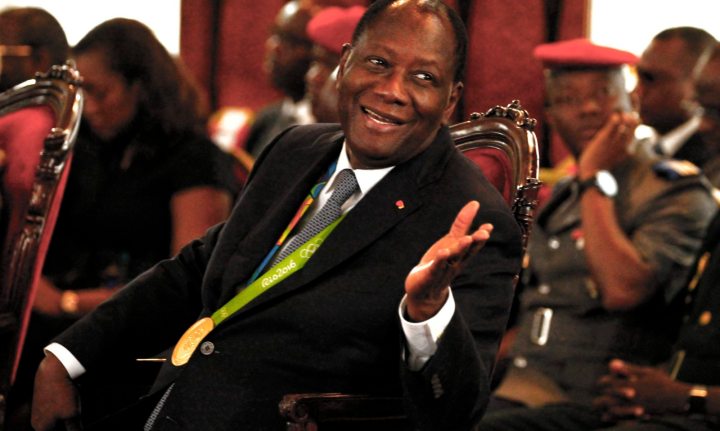ISS TODAY
Talk shop: Dialogue provides no easy answers for Côte d’Ivoire

Talks between President Alassane Ouattara and the opposition can reduce tensions, but major compromises will be needed from both sides.
First published by ISS Today
On 9 November, the Constitutional Council of Côte d’Ivoire confirmed the first round re-election of President Alassane Ouattara for a third term. Ouattara won 94.27% of the vote in the 31 October polls.
According to official figures, the voter turnout was 53.9% – a result that allows the government to defend the legitimacy of the president’s new mandate.
But the opposition and many observers question its reliability.
Ouattara’s re-election ended a particularly tense and contested process that saw the country return to holding elections that have regularly dashed the hopes of Ivorians and paved the way for violence.
Many Ivorians voted in a climate of anxiety and violence (verbal and physical). According to a government statement on 11 November, 85 people died in election-related violence since August, following the announcement of Ouattara’s third term bid.
Election observer missions led by the Economic Community of West African States (ECOWAS) and the African Union (AU) expressed general satisfaction while acknowledging the tense atmosphere in which voting took place.
Civil society told another story.
Indigo Côte d’Ivoire, which deployed nearly 1,000 observers across the country, concluded that the political climate didn’t allow “the massive and serene expression of the vote for a significant part of population”.
The international observer mission led by the Electoral Institute for Sustainable Democracy in Africa and the Carter Center also questioned the competitive and credible nature of the ballot.
Given the suspicion, violence and boycotts that characterised the electoral process, it is hard to say that the poll strengthened peace, social cohesion and democracy in Côte d’Ivoire.
Just a day after the election, the standoff between the opposition and the Ouattara regime grew.
The opposition said it didn’t recognise the process or the results and called for a “civil transition in order to create the conditions for a fair, transparent and inclusive presidential election”.
On 2 November, the opposition created a National Transition Council chaired by former president Henri Konan Bédié.
The Ivorian government vigorously denounced these claims and initiated legal proceedings against some opponents, in particular for “acts of terrorism,” “attack and conspiracy against the authority of the State” and “organisation and participation in an insurrectionary movement”.
Several opposition figures, including Pascal Affi N’Guessan, spokesperson for the opposition alliance, were arrested.
The prevailing impasse and the risks it poses have led to calls for dialogue from ECOWAS, the AU, United Nations (UN), European Union (EU), France and the United States.
Talks could ease tensions and stop the dangerous spiral of violence from worsening.
Addressing the nation on 10 November, Ouattara expressed his “availability… for a sincere and constructive dialogue with the opposition, with respect for the constitutional order”.
He invited Bédié to a meeting “for a frank and sincere dialogue with a view to restoring confidence”. A first contact meeting took place in Abidjan on 11 November.
However, many questions and unknowns surround the dialogue process. On what basis will the talks be established? What framework will be used and who will be involved? And what do they hope to achieve?
The positions taken by Ouattara’s administration and the opposition are so clear-cut and opposed that dialogue would require important compromises on both sides.
The government is unlikely to reverse the constitutionality of Ouattara’s third term, let alone the electoral process that led to it.
Even if this question hasn’t been put back on the negotiating table, there is no indication that the opposition will withdraw its challenge of the legality of the third mandate or formally recognise Ouattara as the legitimate president.
Regarding the framework for talks, the government has always favoured direct dialogue. The opposition, however, wants an international facilitator to lead the process – a request that was reiterated on 11 November.
The seemingly relaxed atmosphere after the meeting between Ouattara and Bédié could mean agreement was reached on direct dialogue with observers participating from ECOWAS, the AU, UN and EU.
While Ouattara may favour a one-on-one with Bédié, a condition set by Bédié is that dialogue must include all the parties and political groups of the opposition.
The animosity between Ouattara and Guillaume Soro leaves room for doubt as to the truly inclusive nature of the process being initiated.
The heterogeneous nature of the opposition and the interests and agendas of its different parties and personalities are also a problem. Can it maintain its cohesion and reach a genuine consensus?
A dialogue process can de-escalate tensions in Côte d’Ivoire, but shouldn’t be seen as an end in itself. It must not lead to yet another power-sharing arrangement between former political allies and opponents.
The Ivorians who lost their lives in recent weeks cannot be sacrificed at the altar of political and individual interests.
The issues that gave rise to the current crisis, in particular the question of presidential term limits, also need to be resolved.
If the two-term rule is to be respected, the constitution should clarify this better to avoid multiple interpretations that tend to be motivated by the political interests of the moment. DM
William Assanvo, Senior Researcher, ISS Abidjan.


















 Become an Insider
Become an Insider
Comments - Please login in order to comment.